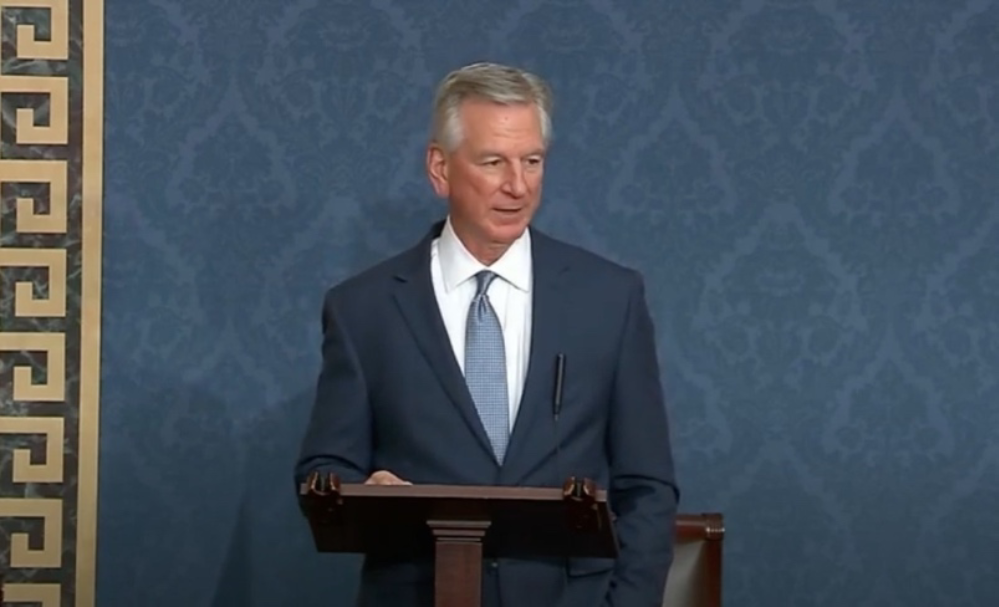Will Sellers: The Turkish Republic at 100

This month, Turkey will celebrate the 100th anniversary of its national Republic Day, which recognizes its transformation from a theocracy to an elected, representative democracy. And, while the contours of Turkey have been around as part of any number of empires, it has only been in recent memory that the nation turned from only facing Mecca and began to look West to the political systems more representative of Europe and Western civilization. Achieving this republic was not an easy task, but as with all countries, it never is. Each country celebrating a national holiday appropriately focuses on the sacrifice and the typically horrific cost it took to become a separate nation, with its citizens determining for themselves not only the form of government, but the type of leadership they would sanction. In the case of Turkey, the road was especially fraught. First, after World War I, Turkey and its German allies were defeated and subject to treaties that reduced national sovereignty and limited future prospects. Secondly, Turkey had been part of the Ottoman Empire, and its little experience with self government was more along Prussian lines, which allowed only a limited role for democratic institutions and popular elections. But one thing Turkey did have was a gift for administration. While the Ottoman Empire was in decline, losing territory and population even before the Great War, Turkey had a bureaucracy with experience in administration.So, as the former empire was carved and divided among conquerors after the war, the physical land boundaries of Anatolia that comprised what came to be Turkey were involved in a civil war, which encouraged invasion from Greece. Even though Turkey was on the losing side, some nationalists refused to accept defeat. They argued that the Ottoman Empire may have lost and may have negotiated a surrender, but they were loyal to protecting their territory and were unwilling to lay down their arms to have no recourse against invading, opportunistic neighbors. Initially, the governing Sultan dispatched his army to quell the rebellion, but the commander, one Mustafa Kemal, realized that the rebels had a point. So, rather than subdue them and essentially leave the territory vulnerable to foreign invasion, Kemal organized the rebels into a defense force to protect the country from foreign invasion. But, in disobeying orders, he violated treaties implicated by the surrender of the Ottoman Empire and caused the allied nations to persist in their desire to occupy portions of Turkey. At this point, Kemal had to deal with both an internal threat with his own “government” opposing his actions and with an external threat focused on annexing portions of Anatolia by force of arms. In a show of great leadership, Kemal dealt with both threats. First, he handled the internal civil war by deposing the Sultan and replacing him. He then formed a new government, which advocated for establishing a new nation with defined boundaries and a resistance to foreign occupation and influence. These aims were not acceptable to the allied occupiers, and they resisted. They first compromised the with new Sultan and had him essentially reject Kemal’s proposals; then, they imprisoned or exiled his supporters. Kemal called for the election of a National Assembly to give him a legitimate political basis to deal with the occupation and the Sultan. When the National Assembly met, they declared that the Sultan was under the influence of infidels and imposed a religious sanction on the Sultanate, which ultimately abolished the Sultan as head of both the mosque and state. Kemal now had a government with himself at the head, and though the National Assembly approved of him as the leader of an executive committee to run the country, he did not enjoy unqualified support. He would eventually ferret out disloyal members and gain a sufficient majority to govern. Having established a legitimate basis to act, he defeated his internal enemies and won the quasi-civil war. Then, he further united his country and began working to defeat the Greeks militarily and force them to return conquered territory. Diplomatically, he was able to reach agreements with neighboring countries to establish territorial integrity and further define the boundaries of Turkey. Treaties were reached with other countries that respected Kemal’s military prowess, which earned Turkey the right to be recognized as a sovereign country. But Turkey had never been a country, only a part of an empire. Any national identity was wrapped up in the Ottoman experience, which advocated loyalty to a Sultan as both a political and religious leader. Kemal’s mission then was to reform this way of thinking and establish a new order that respected certain traditions but also developed new political institutions that would send Turkey down the road to embrace the success of Western governments. Kemal advocated for a new secularism that respected the people’s Muslim faith but removed religious influence over his government and civil order. He abolished religious courts, limited religious dress, and gave women the right to vote and to be members of the national assembly. He saw the progress of Western nations not only in government but in the development of trade and industries. One way he sought to teether his country to this progress was to adopt the Latin Alphabet. He reformed education and created an entire cultural curriculum to substitute Ottoman history with Turkish history. This course of study created a mythological Turkey of the past. But he believed Turkey needed a separate national identity to remove it from past defeats and create a new theory of greatness and unlimited potential. A century ago, Turkey aligned its future with Western democracy and established a republic. By celebrating this achievement, we acknowledge the remarkable leadership of Mustafa Kemal, who would forever be known at Ataturk and see his example as worthy of emulation. Even today, Turkey is a critical and necessary ally. Pausing to look back at their struggles to establish a republic gives us a basis for hope in their future. Will Sellers is a graduate of Hillsdale College and
Tommy Tuberville questions defense nominee about Afghanistan withdrawal and lax border security

On Friday, U.S. Senator Tommy Tuberville (R-Alabama) questioned Joe Biden’s nominee for Under Secretary of Defense for Policy, Derek H. Chollet. Chollet was testifying before the Senate during his confirmation hearing before the Senate Armed Services Committee (SASC). Sen. Tuberville questioned Chollet on the Biden administration’s withdrawal from Afghanistan, why the Biden Administration has not secured the southern border, and why the Department of Defense has not done more to stop the flow of fentanyl coming across the Southern Border. Sen. Tuberville asked, “What do you think was the biggest misstep in the Afghanistan withdrawal in your thoughts after looking at it?” “I think there are so many lessons that we have to learn as a country [from] the 20-year engagement we had in Afghanistan. 2,400 troops lost 20,000 injured, $2 trillion spent,” Chollet answered. “It’s why I applaud what Congress did with the support of this committee – the leadership of this committee – to create the Afghan War Commission. And, if confirmed, I pledged to you that I will do whatever I can to support the work of that commission because it’s critically important that we learn the lessons and apply the lessons of that 20-year engagement in Afghanistan.” Tuberville asked, “So, do you think we made some mistakes in the withdrawal?” Chollet answered, “I think, Senator, that there, of course, were mistakes made over that 20-year period. Absolutely.” “We had less than 100 overdoses a year. Now fentanyl is number one in our state, and we will lose over a thousand people this year,” said Tuberville. “What do we tell the families [whose] kids are dying because of fentanyl – and we won’t do anything at the border. What do we tell them?” “I really appreciate you asking this question because shining a light on the scourge that is fentanyl and the damage it is doing in so many communities across this country is absolutely critical,” said Chollet. “I can say that State Department Secretary [Antony] Blinken has tried to make this into a global issue. Fentanyl is the number one killer of Americans 18 to 49, and it’s a problem that we cannot solve alone because of the elaborate supply chain that creates fentanyl that ends up in U.S. communities. So, just last week in New York, Secretary Blinken hosted a meeting of foreign ministers to talk about ways that countries can work together to try to fight the scourge of fentanyl because it’s not just the U.S. alone that is facing this challenge. Synthetic opioids are ravaging the Middle East and Asia as well. So, we have absolutely got to get at this problem. One of the things that I will do, if confirmed, at DoD is to understand DoD’s role and see what more DoD can do to get at this problem.” “It doesn’t seem like that we have everything in order from the DoD. In May, the Administration sent 1,500 troops to the border,” Tuberville stated. “In August, we pulled out 1,100. And a few days ago, we sent 800 back. If confirmed, I hope we get a little bit more consistency down there. I don’t know if you’ve been down there, but it’s a complete mess. We need to save our kids.” Chollet is the current counselor of the U.S. Department of State. President Biden has appointed him to serve as Under Secretary of Defense for Policy, and he is awaiting confirmation. Chollet’s confirmation is presently on hold due to Sen. Tuberville’s holds on Defense Department nominees due to the Senator’s objection to President Biden’s abortion policy. Tuberville asked Chollet about the current impasse between Tuberville and the White House. “From where I sit – look, we need our team on the field,” Chollet told Tuberville. “Given the challenges that we face in the world from the pacing threat from China and to the threat of Russia. We need all the team on the field. We can’t fight with one hand tied behind our back. The job that I have been nominated for – the senior civilian in the Pentagon – I am going to want my military teammates on the field as well. We need to get this resolved as quick as possible.” Senator Tuberville represents Alabama in the United States Senate and is a member of the Senate Armed Services, Agriculture, Veterans Affairs, and HELP Committees. He was first elected in 2020. To connect with the author of this story or to comment, email brandonmreporter@gmail.com.
Congress passes deal to keep government funded

On Saturday, the U.S. House of Representatives passed a continuing resolution (C.R.) to keep the U.S. government funded and avoid a crippling government shutdown. President Joe Biden signed the bipartisan C.R., giving both houses of Congress another 45 days to finish their 12 funding bills for the 2024 fiscal year, which began on October 1. U.S. Senator Tommy Tuberville blamed Senate Majority Leader Chuck Schumer (D-New York) for not bringing the bills to the floor for regular order. “I am glad that the government is not going to shut down. But this is no way to run a government. This entire spectacle up here never should have happened,” Sen. Tuberville said. “This Clown Show in Washington needs to learn how to govern. That means passing 12 appropriations bills, which a bipartisan group of Senators on the Appropriations Committee did a long time ago. But Chuck Schumer and the Democrats who run Washington don’t want to do that. We cannot lurch from crisis to crisis anymore. We need to finally get to regular order and govern like adults.” Sen. Katie Britt (R-Alabama) blamed President Biden for a lack of leadership. “After completely unnecessary political fire drills, ultimately both chambers were able to come together not only to keep the federal government open but reject President Biden’s misguided supplemental request,” said Sen. Britt. “Now, we will be able to pay our troops, the Border Patrol, and Capitol Police and help our neighbors in Florida and the people of Hawaii recover. We will continue the critical fight for border security while we work to pass responsible appropriations bills through regular order. In the coming weeks, I’ll work with my colleagues to advance spending measures that are judicious, strategic, transparent, and accountable.” Both Houses of Congress were working on a bipartisan C.R. to keep the government funded. The House of Representatives passed theirs Saturday afternoon in a 335 to 91 vote. Senate Majority Leader Mitch McConnell (R-Kentucky) then announced that the Republicans in the Senate would be withdrawing their support for the Senate bill and instead be backing the House bill. Congresswoman Terri Sewell (D-AL07) voted for the bipartisan 45-day C.R. “While I remain frustrated that my Republican colleagues have brought us to the brink of a costly and devastating government shutdown, I am grateful that Speaker [Kevin] McCarthy has finally chosen to work with Democrats at the last minute to extend government funding,” said Rep. Sewell. “While this measure is not perfect, it avoids deep cuts that House Republicans attempted to push through earlier this week and provides critical disaster relief funding that communities in Alabama depend on.” The House version of the C.R. was then voted on and passed by the Senate on Saturday night. The government is funded, but no deal has been reached on federal spending or addressing the crisis on the U.S. southern border. To connect with the author of this story or to comment, email brandonmreporter@gmail.com.
Robert Aderholt welcomes Blount County back into Fourth Congressional District

Last week, the court-appointed special master released three congressional redistricting maps for the three-federal judge panel to consider in a hearing on Tuesday. The U.S. Supreme Court rejected Alabama Attorney General Steve Marshall’s (R) emergency appeal asking the court to stay the lower court’s effort to impose one of those three maps on the state. One of those maps will be Alabama’s new districts, certainly for the 2024 election and possibly through the 2030 election. Congressman Robert Aderholt (R-AL04) shared his thoughts in a statement after the U.S. Supreme Court rejected the State of Alabama’s appeal and the release of three proposed remedial congressional maps drawn by a court-ordered special master. “As I have said previously, the ruling seemed to be a case where the Court was speaking out of both sides of its mouth,” Aderholt said. “They have said you can’t use race to draw district lines, but then said you must use race to draw district lines. Regardless, this seems to be the reality we are facing.” The redistricting means that Aderholt’s district changes for the next term. These same changes were made by the Alabama Legislature in July. The three-judge panel rejected that map. “While I’m sorry that Etowah and Lawrence counties are not technically in the 4th Congressional District, my door is always open to the people of both counties,” Aderholt said. “I welcome Blount County back into the Fourth District and welcome the western portion of Lauderdale as a new part of the Fourth Congressional District.” Steve Marshall expressed his frustration with the court’s ruling. “There should be nothing more offensive to the people of our great state than to be sidelined in 2023 by a view of Alabama that is stuck in 1963,” AG Marshall said on Twitter. “This racial agenda is pressed by left-wing activists, not just in Alabama, but in any Republican state where it might advantage Democrats. If this brazen and divisive commandeering is permitted without even a whisper of concern from other quarters, America’s congressional elections as we know them will never be the same. We will be grouped together by race alone, with counties and cities split down the middle—the same way that we were so wrongfully segregated once before.” Marshall has vowed to continue to appeal and argue for the validity of the map the legislature prepared in a special session in July. Marshall said his office “will continue our fight to defend the 2023 map, which was enacted by the people’s representatives, and which complies with both the Voting Rights Act and the Constitution’s promise that governments should be colorblind.” “We will comply with the district court’s preliminary injunction order while building our case for the 2023 map, which has yet to receive a full hearing,” he said. “We are confident that the Voting Rights Act does not require, and the Constitution does not allow, ‘separate but equal’ congressional districts.” The 2024 election cycle began on Friday with the start of Democratic Party qualifying. Republican qualifying will begin on October 16. The major party primaries, including the presidential primary, will begin on March 5. Despite the changes to the district, Aderholt is expected to qualify to run for another term. He is the longest-serving member of the Alabama congressional delegation. To connect with the author of this story or to comment, email brandonmreporter@gmail.com.
Congress passes stopgap funding bill, avoiding shutdown

By Dan McCaleb | The Center Square President Joe Biden late Saturday night signed a stopgap funding bill that will temporarily keep the federal government open. The president’s signature came shortly after Republican House Speaker Kevin McCarthy, with a midnight Saturday deadline looming before a partial government shutdown, brokered a deal with Democrats on what he called a “clean funding bill.” The measure, which will keep the federal government open into mid-November, includes $16 billion in disaster relief funding but no additional financial aid for Ukraine, according to several national media outlets. It passed the House, 335-91, and then moved to the Senate, where it passed 88-9. “I just signed a law to keep the government open for 47 days. There’s plenty of time to pass Government funding bills for the next fiscal year, and I strongly urge Congress to get to work right away,” Biden tweeted. “The American people expect their government to work. Let’s make sure it does.” The brokered deal could have significant implications for McCarthy. The more conservative members of the House Republican caucus opposed the measure, and U.S. Rep. Matt Gaetz told CNN Sunday that he will try to remove McCarthy from his leadership post this week. Republished with the permission of The Center Square.
Business Council of Alabama finds CEO Helena Duncan is good for business

Helena Duncan assumed leadership at the state’s most influential business advocacy organization, the Business Council of Alabama (BCA), in December 2022. As president and CEO, she brings to the position 35 years of experience in the world of finance. She previously served as BCA’s senior vice president of operations and investor relations and, before that, served as regional president of Liberty Bank and Trust for five years. A finance graduate of Auburn University at Montgomery, she built her career in the banking and mortgage world with positions at First Tuskegee Bank, American Legacy Mortgage, and Colonial Bancgroup. She is active in Montgomery-area community affairs, serving as a member of the Committee of 100, and the board of directors for the YMCA, Dixie Electric Cooperative, and the advisory board for Synovus Bank. She is also former chairman of the board at Saint James School. She is passionate about advocating for Alabama business, as she related in a recent Q&A with Alabama Living magazine: Alabama Living: Tell us a little about your growing-up years and where you went to high school and college. Helena Duncan: I am the youngest of five kids. It was tough growing up behind such dynamic siblings. Our parents put a lot of importance on education. Their expectations were high, but they were right there with us every step of the way. I graduated from Opelika High School. I attended both Auburn University and Auburn-Montgomery, where I obtained my degree in finance. AL: How did you decide to go into the financial sector for your career? Duncan: The financial sector chose me, I like to say. I started working as a teller while I was in college. That allowed me to have my nights and weekends free. I realized then that I liked banking and that I was actually good at it. It was early enough in my education that I was able to declare finance as my major and continued on that path. AL: How has your experience in banking and the financial world helped you in your new role at BCA? Duncan: For one, serving others and trying to do the best thing possible to help advance others. Also, in banking, I often got to hear and witness the challenges businesses faced doing business in Alabama. Then I couldn’t do much about it outside of being a listening ear. Now, I’m in a position to help facilitate change to make Alabama a great place to do business. Working in finance allows me to understand both sides of the issues. AL: How does your role as a trustee of Dixie Electric Cooperative help you in making decisions for the larger business community? Conversely, how does your business background help you in your role as a Dixie EC trustee? Duncan: Dixie is so fortunate the have the leadership team that we have. Being involved with this board really allows me an up-close and personal view of the impact that legislation has on business decisions within an organization. It allows me to see what’s working well and what’s not. My background in business and finance helps me to be more of a part of the solution. We have a very smart and engaged board, all with their own set of talents to offer. Together, we make quite the team. AL: I hear you love to brag on your family, so tell us about them. Duncan: Well, Clarence and I are extremely proud of our sons, CJ and Collin. CJ graduated at Vanderbilt University and is now in government affairs in Nashville, Tennessee. Collin just recently graduated from Mississippi State with a degree in kinesiology. AL: How do you like to relax after work? Duncan: I haven’t figured that out yet. Most days close with dinner with my husband, recapping the day. After 32 years of marriage, I really can’t think of a better way to do it. This story originally appeared in Alabama Living magazine. Republished with the permission of The Alabama NewsCenter.
2023 has been a battleground for transgender athletics

By Tom Gantert | The Center Square A law took effect in Texas this month that bans transgender women from playing a women’s sport at the college level. It was similar to a 2021 law that banned athletes in public schools in that state from playing on any team that differed from the sex they were assigned to at birth. This year has been the battleground for the debate on whether biological males who identify as females should be allowed to play female sports as politicians and the courts have grappled with the issue. Many government agencies and transgender advocacy groups are pushing to allow boys who say they are girls to participate in sports previously reserved for females, while polling shows that a majority of Americans are against it. According to The Center Square Voters’ Voice Poll of 2,500 registered voters across the U.S., a 2-to-1 majority oppose transgender women student-athletes competing in women’s sports. The poll was released in August and conducted by Noble Predictive Insights. A Gallup poll released in June found 69% say transgender athletes should only be allowed to compete on sports teams that align with their biological sex at birth. At the core of the debate is the accusation of discrimination, transgender women being victims of it by those wishing to keep girls’ women’s sports played among women; and the accusation of fairness, girls and women being the victims when forced to compete against biological males. “Women and young girls deserve to compete on a level playing field. When laws ignore biological reality and allow males to compete on girls’ sports teams, girls are harmed and denied athletic opportunities,” Christiana Kiefer, senior counsel for Alliance Defending Freedom, wrote in an email to The Center Square. “Science and common sense tell us that males are generally bigger, faster, and stronger than females. They have larger hearts and lungs, denser bones, and stronger muscles. No amount of testosterone suppression can undo all those advantages. We hope that states continue to protect fairness in women’s sports by adopting laws and policies that reflect biological reality.” The Alliance Defending Freedom is involved in a 2020 lawsuit in which it represented four female Connecticut high school athletes. They filed a lawsuit challenging the state athletic association’s policy to allow boys to play girls’ sports. U.S. District Judge Robert Chatigny ruled against the female athletes in December. The Heritage Foundation reported that Chatigny ordered attorneys for the Alliance Defending Freedom to use the term “transgender females” when referring to boys who identify as girls. The 2nd U.S. Circuit Court of Appeals initially ruled in favor of Connecticut’s policy in 2022, but has since said it would reconsider the case; it is pending. The Movement Advancement Project analyzes transgender sports policies across the country. It says the nation is split on the issue. It found that 24 states and two territories have policies that are fair or favorable to transgender athletes and 26 states and three territories have policies that are not. ESPN has tracked transgender legislation and reported that 23 states had passed laws restricting transgender athletes’ ability to play sports since 2020. In March, Democrats in the U.S. House introduced the Transgender Bill of Rights, a resolution that would “ensure” transgender athletes could participate in the sport of their choice. The Transgender Bill of Rights calls on the federal government to take action. In April, Republicans in the U.S. House introduced House Resolution 734, the “Protection of Women and Girls in Sports Act 2023.” It would ban boys, who call themselves transgender women, from playing in female sports. The House passed the bill; its road in the Senate is considered uphill with a Democratic majority in place. In August, the North Carolina House and Senate overrode Democratic Gov. Roy Cooper’s veto and passed the Fairness in Women’s Sports Act. The law “prohibits male students from playing on middle school, high school, or collegiate athletics teams designated for females, women, or girls.” It also “requires a student’s sex to be recognized solely based on reproductive biology and genetics at birth for purposes of athletic participation.” The U.S. Department of Education supports transgender athletes being able to play on the sports team gender in which they identify. The department says banning transgender athletes from playing on a sports team due to gender is discrimination. Discussion of the issue escalated around Lia Thomas, a swimmer at Penn University who competed on the men’s team as William Thomas for three years. The athlete switched to Lia for a senior season, and was allowed by the university and the NCAA to compete in 2022. Thomas was the first openly transgender athlete to win an NCAA Division I national championship in 2022. Thomas was ranked 65th in the 500-meter freestyle in 2018-19, the last season Thomas swam for the University of Pennsylvania men’s team, according to Swimming World Magazine. Thomas won the NCAA championship in the women’s 500 freestyle in 2022 while competing for the Penn women’s team. Other men competing in women’s categories have lifted visibility for events from volleyball, to weight lifting to cycling to running. The website SheWon.org tracks “achievements of female athletes who were displaced by males in women’s sporting events” all over the world. As of Sept. 22, it had 608 entries. A 2010 report conducted by authors affiliated with the Women’s Sports Foundation and The National Center for Lesbian Rights called concerns that transgender females playing female sports would dominate as “not well founded.” The report stated that “medically guided hormonal treatment prior to puberty” neutralized any advantage. Thirteen years later, the polls, many women athletes, and lawyers like Kiefer disagree. In Michigan, the high school association states it will determine eligibility on a “case-by-case” basis. The Michigan High School Athletic Association does ask for documentation of a student’s medical and psychological records as well as whether they have undergone hormone therapy and gender-affirmation surgery. In Ohio, the high school athletic association allows transgender athletes to compete for girls’ teams, but the athlete must be taking a medically prescribed hormone treatment related to gender transition and have completed a minimum of one year
Pentagon misses deadline for barracks privatization report

By Brett Rowland | The Center Square The privatization feasibility report was required as part of the National Defense Authorization Act for Fiscal Year 2023, which provided $838.8 billion in military funding to the Pentagon. It was due in July. But Elizabeth Field, director of Defense Capabilities and Management for the Government Accountability Office, told the House Armed Services Committee panel that the Department of Defense has yet to provide a timetable for completing the report. “We could not get any clear information from the department on when it will be delivered,” she said. Most other military housing in the U.S. was privatized over the past three decades. In the mid-1990s, the Department of Defense worried that inadequate housing was one reason people were leaving the military. Congress passed the Military Housing Privatization Initiative in 1996. That gave the Pentagon the authority to use private-sector financing and management. Since then, the private sector has taken over about 99% of military family housing in the U.S. By contrast, the Army and Navy have seven privatized barracks projects, according to the Government Accountability Office report. The rest of the barracks are owned and operated by the military services. Those living in privatized barracks “consistently told [the GAO] they were satisfied with the condition of their housing,” according to the Government Accountability Office report. Problems with privatized military housing have been reported as well, including poor housing conditions, according to previous Government Accountability Office report. “A few years ago, we saw similar conditions in private family military housing,” U.S. Rep. Don Bacon, R-Neb., said. “Families dealt with long delays in repair and maintenance requests or requests that were not responded to at all, children were getting sick from mold and lead paint, and members feared retribution from private companies if they complained to their command. This situation required extensive Congressional action to make improvements to these conditions.” Previous efforts to evaluate the feasibility of privatizing barracks weren’t comprehensive or “sufficient for decision-making,” according to the most recent Government Accountability Office report. “From 1997 to 2011, the services conducted several assessments of the costs and suitability of privatization as a financing method for their housing needs for unaccompanied personnel,” according to the report. ” … Because the military services used different methods, such as business case and life-cycle cost analyses and different assumptions about how repairs and upkeep for housing would be funded, the services reached different conclusions about the potential for cost savings from using either privatization or the traditional government-funded military construction approach.” The Army concluded that privatization was feasible, but more costly in most cases. The Navy concluded that privatization was feasible in certain locations. The Air Force and Marine Corps concluded that privatization was “not desirable for housing unaccompanied personnel,” according to the report. But privatization hasn’t gone away. Officials from the Office of the Secretary of Defense told the Government Accountability Office “they found the idea of privatizing barracks appealing but also had questions about the feasibility of doing so.” The U.S. Department of Defense missed a deadline to provide Congress with a report on the feasibility of privatizing barracks. A U.S. Government Accountability Office director highlighted the importance of the report and the missed deadline at a House Armed Services Committee panel hearing that detailed health and safety problems at military barracks, including sewage backups, mold, rodent infestations, and inoperable fire safety systems. Conditions were so bad in some places that service members sometimes took “drastic action, such as getting married, just to leave the barracks,” according to the report. Hundreds of thousands of U.S. troops live in barracks, which are for the most junior-ranking unmarried service members without children or other dependents. Republished with the permission of The Center Square.


